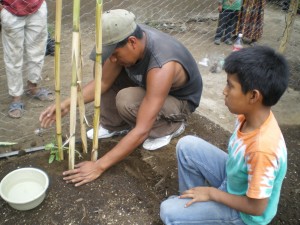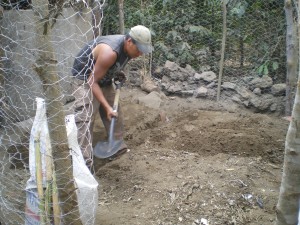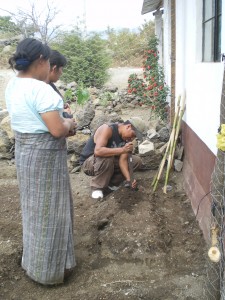Finally after all the work of buying the fencing, organic compost and organizing local men to build the gardens it was time to visit each families garden.
Once again we were accompanied by Fernando and his old but trusty pickup.We had it loaded with tomato and hot pepper plants. The trip was really slow as we did not want the tender plants damaged.
We visited each of the homes and showed the women how to make tomato cages out of yarn and wild local cane.
We gave out tomato and hot pepper seeds and explained that these seeds are difficult to grow and they need to use the mini greenhouses that they learned about yesterday for these 2 types of seeds.
We then went through the seed packages we had made. The moms can not read so they will need to rely on their children to know what each package contains.
We then explained that there should be enough seeds to last a year if they space planting properly.
We visited 12 families and collected beaded keychains. It cost each family one keychain for the chicken wire, one keychain for the 3 bags of organig compost and 2 keychains for the package of 15 types of vegetable seeds and the 3 tomato plants and 3 hot pepper plants. It is important that the families pay something for the garden…handouts can lead to problems.
The families received
green bean, turnip, carrot, cilantro, cauliflower, broccoli, cabbage, tomato, hot pepper, carrot, beet, zucchini, onion, radish and cucumber seeds










